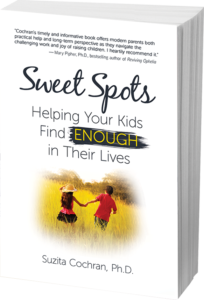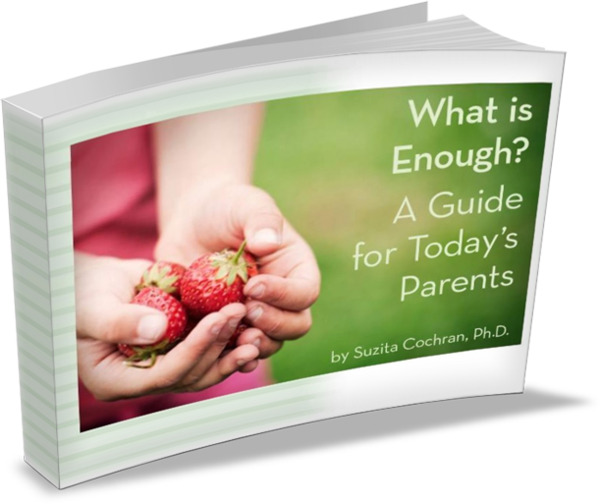 I was in the library a few days before Winter Break and ran into my friend Sherry, a regular Play. Fight. Repeat. reader. Being an astute parent, Sherry was aware that our upcoming school vacation with kids home for much longer than our parents ever had to deal with, would not be a “vacation” for her.
I was in the library a few days before Winter Break and ran into my friend Sherry, a regular Play. Fight. Repeat. reader. Being an astute parent, Sherry was aware that our upcoming school vacation with kids home for much longer than our parents ever had to deal with, would not be a “vacation” for her.
“Will you write something on sibling rivalry? It could be a long break at our house!”
Okay Sherry, here goes…
In my experience sibling rivalry is in the Top 5 Hardest Things about Parenting, a position it shares with the entire family succumbing to the stomach flu. I won’t overwhelm you with the other three on the list, but you’re sure to read about them in future blog posts.
In our home the level of sibling rivalry is a barometer for how well we are doing as a family. It ebbs and flows with Todd’s and my stress levels. When we are on top of our game, sibling bickering drops to an ignorable minimum. But come the end of a semester when Todd is facing mountains of grading, and the kids’ school parties, performances, concerts, and tournaments all occur during one intense, hectic week, sibling rivalry rears its ugly head endlessly.
Here are some strategies we’ve used to combat it:
1. Run ‘em like puppies.
A child who’s just run around outside for 30 minutes (or longer!) is much less likely to pick fights with his siblings.
2. Make playing together a privilege.
When our kids are constantly fighting, fussing, or competing, we remove the privilege of playing together. We call it having a day of boredom, and it’s amazing how relatively quickly it generates new appreciation for one’s siblings.
3. Give young children the tools they need to play well together.
We spent YEARS teaching our kids how to share and cooperate. Yes really, I mean years. The kids have been watching home videos of their younger years lately, and it’s almost painful to watch us continually working on the same lesson as they hit each new age.
Day after day we’d give them words to use when they wanted a toy that someone else had. We’d demonstrate how to offer another equivalent toy as a trade again and again.
For those of you still living through this stage, it really does end eventually. For me it ended about the time I finally gave up hope that they’d ever learn these skills. One day soon after I let go of this, I heard a little voice saying, “You can have Thomas the Tank Engine in two minutes. Go tell Mama to set the timer.” Hallelujah!
Many of the parenting books I devoured during this phase advised us to let kids “work it out amongst themselves.” Overall I believe in striving for this noble goal, and our home videos prove I tried. But let’s be realistic: There are foreign countries which have been trying unsuccessfully to keep the peace for years, and more often than not they revert to violence. Yet we are urged to let our 3 and 5 year-old kids work it out together unaided? Without some pretty strong negotiation skills, it’s never happened at my house.
I was excited to read about Laurie Kramer’s research and sibling program called More Fun with Sisters and Brothers. Rather than coaching parents to effectively respond to sibling fights, Kramer teaches siblings proactive social skills.
The authors of Nurture Shock write that Kramer’s beneficial program emphasizes sibling conflict prevention rather than conflict resolution. This approach has worked at our house.
4. Encourage different interests among your kids.
This is vital, especially with same gender, close in age children. Yet it took me forever to implement this one. My only excuse is that my sons loved the same activities for the longest time. Plus, I was in such survival mode during those early years that the efficiency model took over.
“You mean, you’ll teach both of my kids the recorder at the same time? It’s a deal!”
“Three swimming lessons in the same pool beginning at 4:00? Where can I sign up?”
Over time, as I’m sure you can see better than I could, this leads to even more sibling rivalry. My younger son always compared his abilities unfavorably to those of his older brother, no matter what logic I used with him.
I’m embarrassed to admit it took me so long, but it was just last year when I finally made a change. I recall the day it happened. My younger son was demonstrating one of his newly acquired skills. I don’t recollect which, with Daniel it could have been anything from yo-yoing, to whistling, to juggling.
Again and again, “Watch this Mama! Isn’t this cool Mama? Now watch this!” I remember thinking, “I can’t seem to give this child the amount of attention he needs right now. It would take a whole audience!” And bingo! There was the insight. Get thy son into a theater group! It’s been a perfect fit for him. Additionally it’s something his older brother isn’t drawn to in the least so Stephen is supportive of Daniel without any rivalry.
5. Spend one-on-one time with each child daily.
(See my Importance of Simply Giving Time piece for how experts recommend doing this.) This is one of those suggestions I gave out ever so freely as a child psychologist before I had kids. I still whole-heartedly agree with it, but now more humbly acknowledge it’s surprisingly hard to pull off. However, I’ve also seen that when we spend quality one-on-one time with each child daily, it’s as if the sibling rivalry energy just drains right out of their little bodies.
Other helpful books or anti-rivalry strategies? Leave a comment below!
_______
Recommended reading:
Siblings Without Rivalry, by Adele Faber and Elaine Mazlish. Although this book’s title is an impossibility which inspires false hope, the book itself has some excellent suggestions for getting to the cause of your kids’ sibling rivalry. It’s a classic that’s well worth reading.
Nurture Shock, by Po Bronson and Ashley Merryman. The chapter about siblings contains research contradicting some of the conventional knowledge floating around. It also points out that certain books we parents commonly reach for such as, The Berenstain Bears or Arthur series, don’t present very positive sibling relationships and can actually teach kids negative sibling behaviors.

 Sweet Spots: Helping Your Kids Find ENOUGH in Their Lives.
Sweet Spots: Helping Your Kids Find ENOUGH in Their Lives.


I’m a fan of teaching good skills proactively. One way I put it is, “give them the script.” It seems crass–feeding lines to your kids–but how else do they learn to say “the meal is delicious, mom” or “can you please help me with my socks?” or “don’t hit me with your toys” or anything else a civilized primate should say.
You do it, they do it, their dolls & stuffed animals do it, and next thing you know they have a skill that’s becoming a habit.
And when I start focusing too much on stopping negative behaviors, I remind myself of animal trainers. How do you get a dolphin to jump through a flaming hoop, or an orangutan to wear a helmet and ride a skateboard in a half-pipe? Lots and lots of positive reinforcement, and lots and lots of baby steps.
Ever since I’ve had kids I’ve had so much more respect for animal trainers!
Suzita